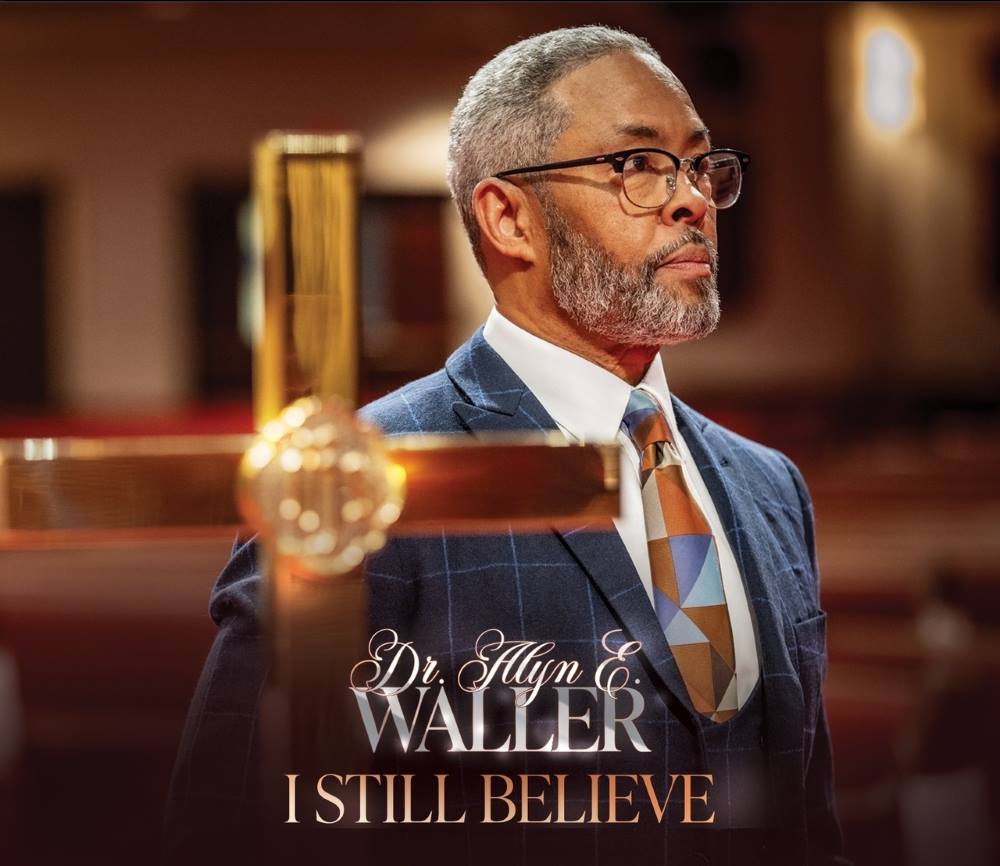
Grear was born and raised in Gary, Indiana, attending Open Door Church of God on Fifth Avenue. He sang in the church choir and in his family’s own gospel group, but by the 1980s, he was working for the music department of Deliverance Temple COGIC. “As I got to my later teen years,” Grear reflected, “I began to realize that gospel music was more for me than just something I enjoyed doing in church. So I began to branch out and do things outside the church with some of Gary’s local artists.”
One of those artists was Sheila Austin. In the mid-80s, Austin invited Grear to join her on a live album. “She had me to put together a group for the recording, and we kept that group together after the recording,” Grear said. “James Grear and the True Holiness Singers. I made my first recording with that group when I was nineteen years old, right out of Lew Wallace High School.” Grear cites Thomas Whitfield, the Hawkins Family and Richard Smallwood as early influences.
James Grear and the True Holiness Singers were together about seven years. When Grear moved from Gary to the Minneapolis area in the late 1980s, his affiliation with the group ended.
The Twin Cities area is, as Grear puts it, “mostly known for Prince, so people look at us as a secular area. When I moved here in the late 1980s, there wasn’t much here per se as far as gospel was concerned. We had the late Sam Davis who was quite a name here and around the country. At one time, Excelsior was the only community choir in the area. They were the premiere community choir, but over time a number of other great choirs and groups emerged as people moved here from all over the country.”
One of the groups that moved to the Twin Cities was the Steele Family, a family group that went on to be part of the gospel musical, The Gospel at Colonnus. Like Grear, the Steeles came from Gary. “I grew up with them,” Grear reminisced. “Billy Steele was the organist in my first group. I was the first person he played for, and J.D., Jevetta, all of them grew up next door to my aunt and first cousin, so I’ve known them all my life. Billy was the one who kind of talked me into moving to the Twin Cities in the first place.”
Not long after moving to the Twin Cities, music found Grear, who “ended up with a group by chance. I came here to get a job and a local church asked me to put together a group of singers for a fundraiser program for their building fund.” That group became what is today’s James Grear & Company.
James Grear & Company is known for its willingness to minister outside as well as inside church walls. “Our music has always been embraced by people outside the church. We began to do functions such as a gospel brunch event, and performing at Minneapolis’ Fine Line Music Café. By night Fine Line is definitely a club, but it embraces gospel on Sundays, and we have held CD releases there.”
Grear learned what it is like to be behind the gospel music scenes through his work with the Liquid 8 label. “I came to Liquid 8 as an artist, but as they were branching out and becoming more acquainted with the gospel music industry, they hired me as vice president to head up their gospel music division. My job was to manage their HOB catalog as well as to bring on other artists and work on the Smokey Robinson project they had at the time. It was quite an experience, the switch from gospel artist to record label exec. I learned so much about the other side of the industry and the record label’s viewpoint.”
Grear & Company’s latest project, Don’t Waste Another Day, was released in August 2009. The title track, Grear explains, “is an inspirational song. I hope that when people hear it, they will be motivated and encouraged to do whatever it is that they feel their quest in life is to do. It could be to sing, it could be to start a business, it could be to write a book. It could be as simple as losing weight or living healthier. We find reasons or excuses to put things off, so the message of the song is ‘don’t waste another day.’ Even if you just take baby steps, start today. If you have a vision, carry out that vision, and believe that the resources and provisions will come to carry out what you are supposed to do.”
Another notable track is the album’s current single, a cover of “Hold On (Change is Coming), recorded in 1997 by another Twin Cities ensemble, the Sounds of Blackness. “Twelve years ago, [Sounds of Blackness’s] ‘Hold On (Change is Coming)’ brought me through one of the hardest times of my life. I vowed that I would record that song someday in hopes that it would do for someone else what it did for me. I had no idea that that it would become a single. It’s doing just what I hoped it would do. People are really being touched by the song.”
“This is such a great time and position for gospel music,” Grear reflected. “It has a positive and inspirational message, and we need that in this day and time, when there’s so much other music out there that has influence over our younger generation. Now that the mainstream doors have been opened, I think we are perfectly positioned to get a positive message out to every generation.
“Gospel music is a message of hope, love, motivation and encouragement. It tells you that no matter how challenging your life is, there is always hope.”
Written by : Bob Marovich
Bob Marovich is a gospel music historian, author, and radio host. Founder of Journal of Gospel Music blog (formally The Black Gospel Blog) and producer of the Gospel Memories Radio Show.











 Visit Today : 10
Visit Today : 10 This Month : 135
This Month : 135